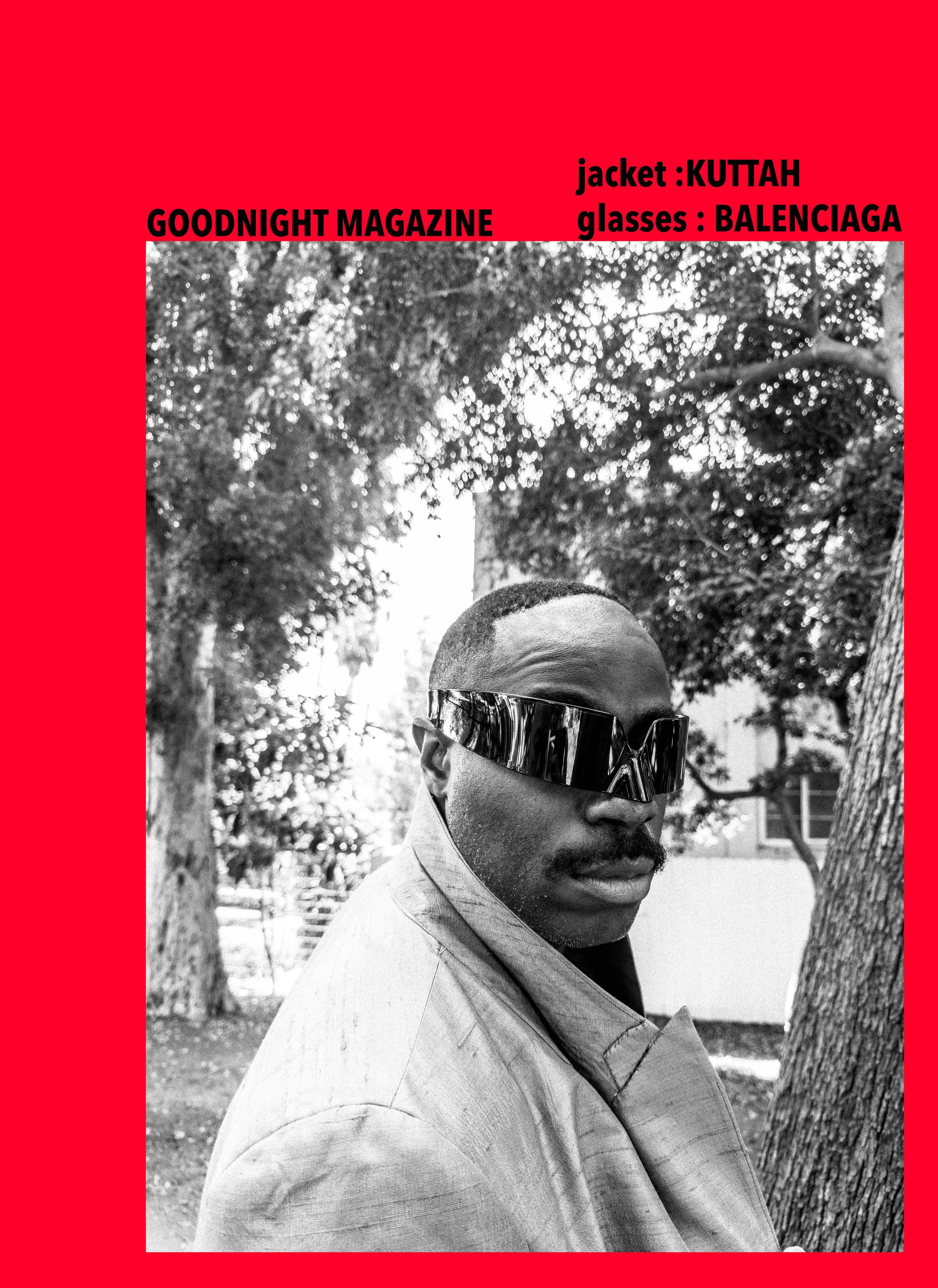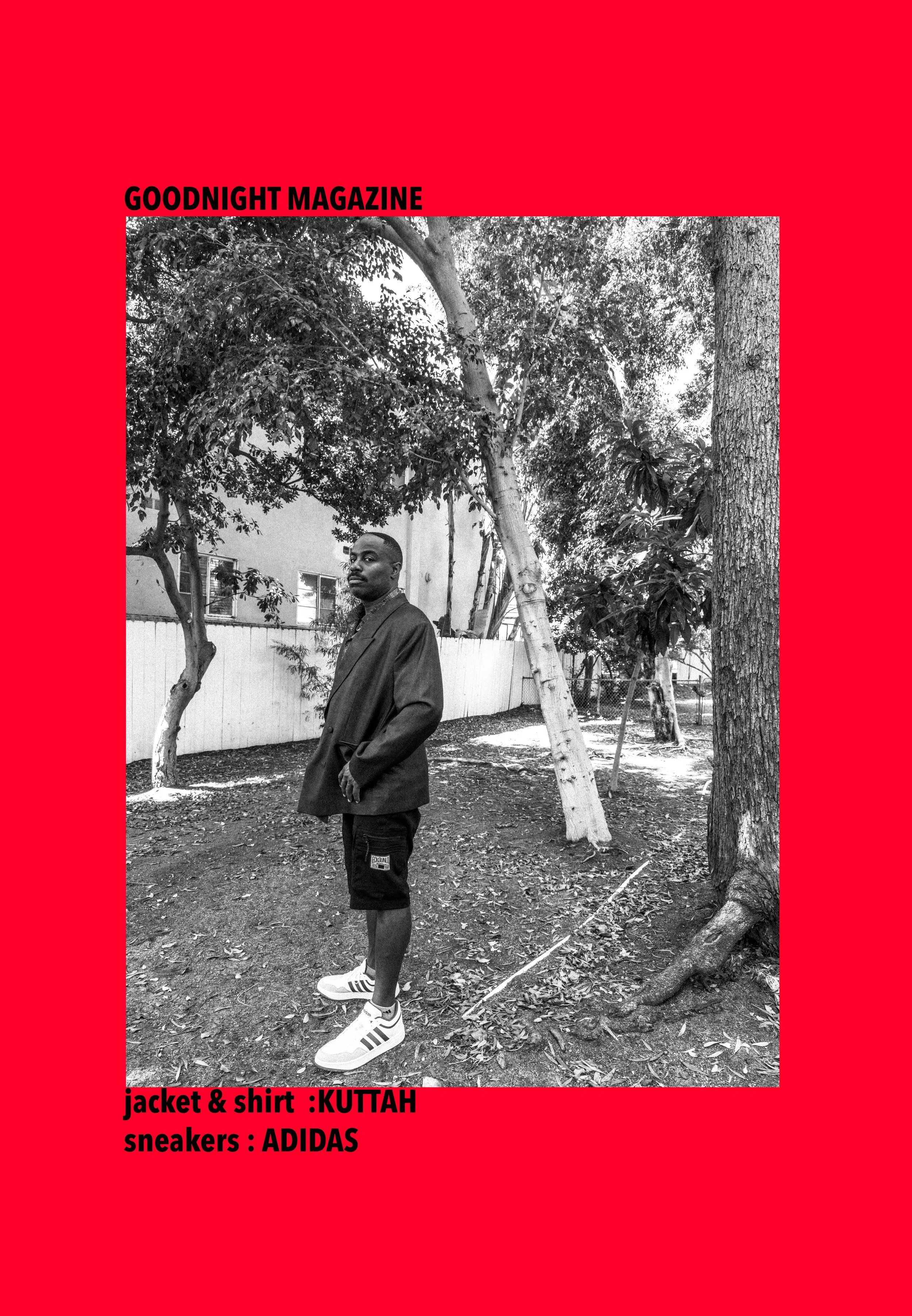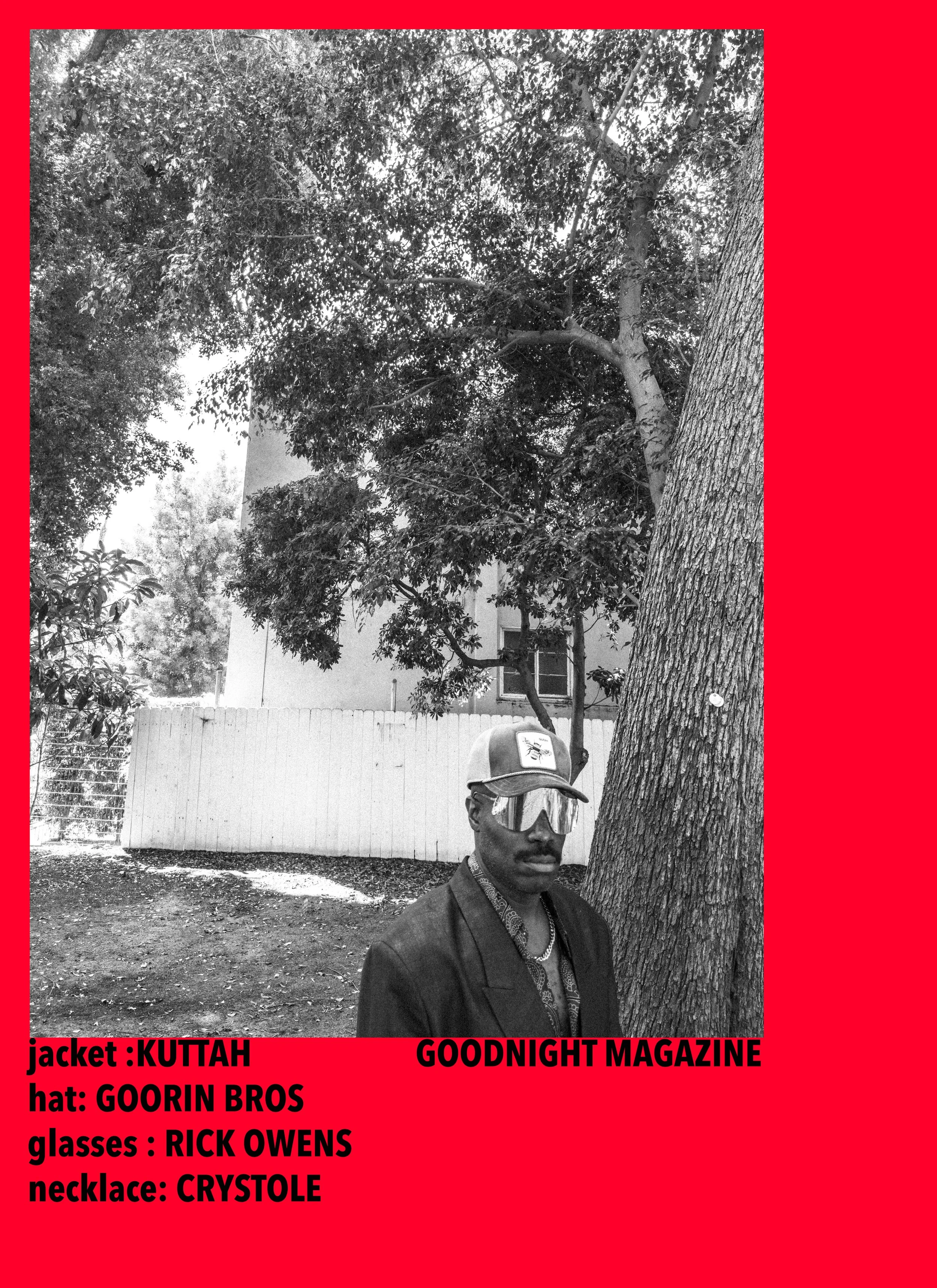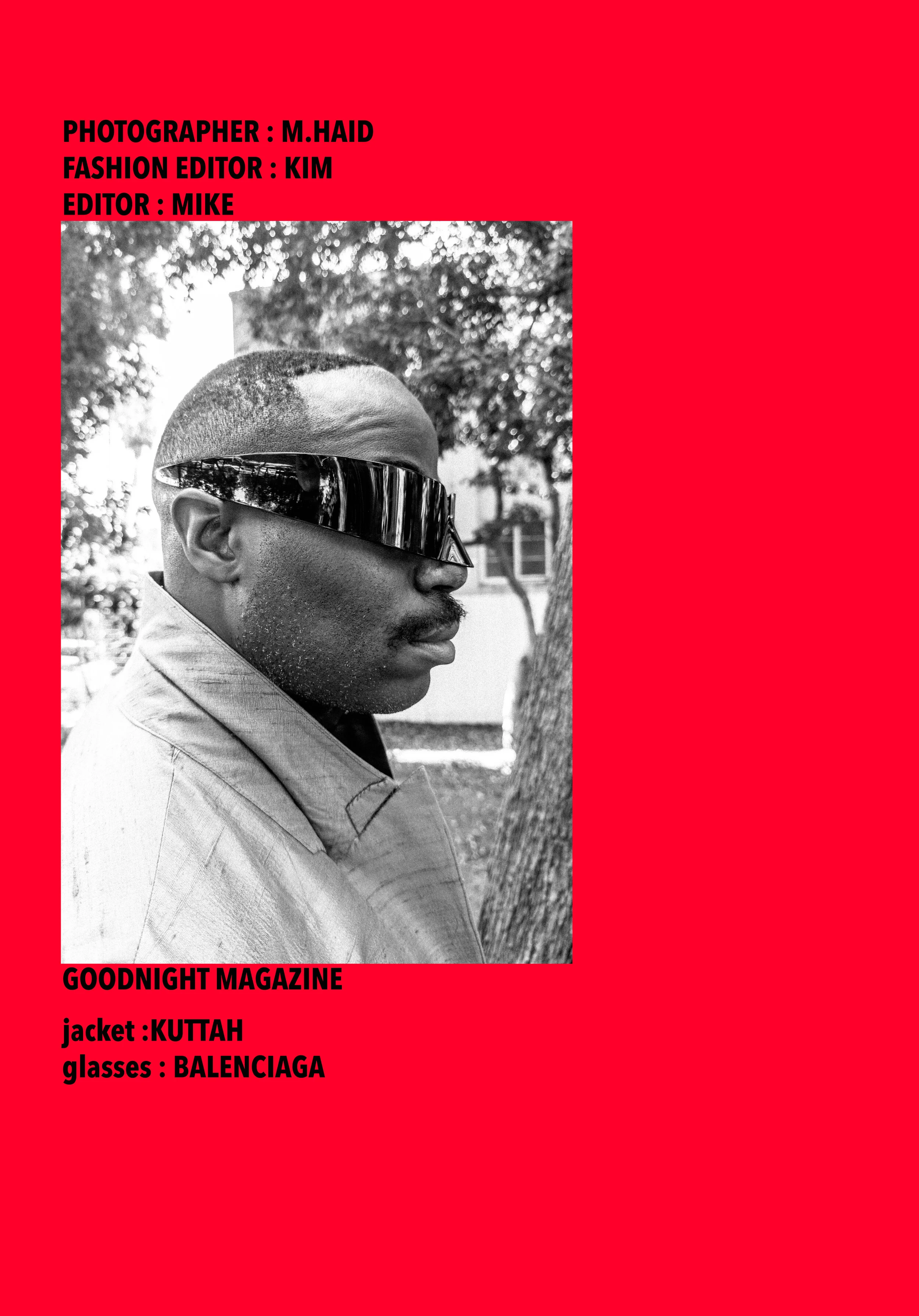MILTON DARNELL SMITH




Q&A
GN: Can you share how your passion for acting first began, and what inspired you to pursue this career professionally?
MS: I was introduced to acting in church. I remember the first time I was selected to be in the annual Easter play because I liked to talk a lot. A big inspiration to pursue this professionally came from seeing a member of my church, acting legend Angela Bassett during the time of What’s Love Got to Do With It. She was always very encouraging of me and when she saw me in our church plays she always told me good job and stuff like that. I also had some minor parts on TV while in high school.
GN: What was the moment or project that you would consider your first real “break” in Hollywood?
MS: I got a chance to work on Catch Me If you can with Steven Spielberg and I had a seen with Leonardo DiCaprio I was super excited to have that opportunity but was devastated when the scene was cut from the movie. I took it pretty hard but as I got older I realized what's meant for me is meant for me.
GN: Every actor’s path has its challenges—what obstacles did you face early on, and how did you push through to establish yourself?
MS: Early on I think one of my challenges is I felt like I was typecast quite a bit and it was a little bit hard to break out of it I was always seen as the bad guy, but you know I was a trained actor with experience doing Shakespeare and I think casting directors could never see past my “look.”
GN: You’ve built a career that spans both Hollywood and Mexican cinema. What first drew you to work in Mexico, and how did that transition come about?
MS: From a young age I've had a strong love and appreciation for Mexico. It's people, culture, and history always captivated me. My best friend since I was 11 is Mexican American and his mother who was born in Durango, Mexico basically adopted me as one of her other children. I got to experience Mexico first hand with her and was fortunate to visit quite a bit growing up. I was a big fan of novellas and it's rich cinema traditions. After helping a fellow actor with a self-tape audition for a commercial I was spotted by a casting director and asked to audition for a part in Alejandro González Inarritu’s movie.
GN: How has working between two very different entertainment industries Hollywood and Mexico shaped you as an actor and storyteller?
MS: It's allowed me to be very adaptable and freer with my acting choices. Both industries are very different but at the end of the day my training and my lived experience are what shape my work.
GN: Looking back at your journey, what advice would you give to emerging actors who hope to cross borders and build an international career?
MS: I would first say you should try to immerse yourself into the culture. Get to know the traditions and connect with local people and see how they're living. I would also say remain flexible and don't assume that there's only one way to approach acting there's no one way to be an actor.
GN: In Trust, you play Officer Carroll, a character who steps into a tense story of betrayal and survival. What initially attracted you to this role?
MS: What initially attracted me to this role was that officer Carroll is someone who deeply cares about working in service of others and it's something that I myself enjoy doing. He doesn’t have much of an ego, he’s there to do a job and to do it to the best of his ability.
GN: Officer Carroll isn’t the central character, yet he carries weight in the narrative. How did you bring dimension to a role that adds texture and realism to the thriller?
MS: I really wanted to show that officer Carol had many layers to him he's a family man he's a trusted partner on the job, but he also cares about the world around him. All his choices were inspired by doing what was for the greater good and I think that was one of the things that was really important to me as I portrayed him. You know he’s not just regular detective he's someone who's thinking long-term and is very solution-focused.
GN: What was it like working under Carlson Young’s direction, particularly in a project that balances psychological tension with character-driven drama?
MS: I loved working with Carlson she was so great at giving us direction and but at the same time she gave us freedom to kind of play and really show different sides of our personalities within these character that wasn't just in the script. I really enjoyed that we got to do a little bit of improv as well. This allowed me to discover more and more about the character.
GN: Sophie Turner, Rhys Coiro, and Billy Campbell form the central ensemble of Trust. How did your interactions with them on set influence your performance as Officer Carroll?
MS: I think because they were all three very experienced and dedicated actors it allowed me to just kind of show up bringing my A game every day. They each brought an amazing level of professionalism and dedication that was felt throughout the whole production.
GN: Thrillers often require a delicate balance between grounded realism and heightened suspense. How did you prepare to capture both elements in your performance?
MS: I think it was important for me to have officer Carol really have these different levels within him, I wanted him to be very intentional from his walk to how he talked, etc. I also wanted to make sure that I was staying in the moment and being open to going with the flow in every scene.
GN: In Las Uspadoras de Muscal, you played a hotel security guard in a comedy-drama filled with sharp contrasts to Trust. How did that lighter role challenge you in different ways as an actor?
MS: That was a very interesting role because I don't consider myself to be a very comedic actor but I enjoy comedy, and I sometimes I shy away from comedy but it was great to be able to play and discover different kind of colors within myself as it relates to comedy in that role and the director really encouraged us to just have fun and to go for it so that was really helpful.
GN: Bardo: False Chronicle of a Handful of Truths was a deeply surreal and philosophical project under the direction of Alejandro G. Iñárritu. How did portraying the preacher stretch you as an actor?
MS: So, my grandfather was a preacher and I had lots of experience growing up in church and so for me it was really about connecting to what made this man so invested in his religion and his unwavering faith. As someone who is more spiritual than religious it was it was important for me to humanize him as well.
GN: Did working with Iñárritu, an Oscar-winning filmmaker, influence your perspective on storytelling and performance?
MS: Yes, that entire experience was one I always remember I learned so much from watching him work, he's a true genius. I've been a fan of his work for years, so I was honored to be able to be a part of that film. He also gave me lots of space to improvise the character and trust my instincts because he wasn't aware of the Black church and since I had grown up in it, he gave me lots of creative liberty to make this character my own.
GN: In Four Eyed Monsters, you portrayed part of a gay couple in an experimental, indie project that challenged conventional narrative forms. What was it like participating in a film that communicated largely through artistic, non-verbal expression?
MS: I have to admit this was a little bit of a difficult film for me because we spent quite a bit of time before shooting it, working closely with the directors to develop the characters. By the time we got ready to shoot we were really connected to our characters. Everything was nonverbal and so it was important for me to really focus on all of my movements with my face and my body and have that translate what I was trying to express.
GN: Your career spans commercial projects, independent films, and international cinema. How do you select roles, and what guides your choices in such a diverse portfolio?
MS: I try to select rolls that I find interesting in an authentic characters to play and one of the things that's important for me too is who am I collaborating with and fortunately I've gotten to work with some really great directors over my career.
GN: Across your performances—whether as an officer, a security guard, a preacher, or part of an intimate couple—there’s a thread of humanity. How important is it for you to find the truth of each character, regardless of screen time?
MS: I was taught early on in my acting career that it's important not to judge the characters you play. Instead its better to be an advocate for the character that you're playing and I think for me it's important to humanize them as well and so when I'm taking on a role or when I'm you know auditioning for a role I try to first ask who is this person and what are his desires and his dreams and his goals, because we all have desires and dreams. I have that be the central focus on what I want to convey with my acting.
GN: Looking ahead, what types of stories or roles are you most eager to explore next, and how do you see your journey evolving as an actor?
MS: I have a couple of projects that are coming out hopefully later this year or early next year where I get to really flex my acting muscles a bit more. I'd love to play a lawyer or a roll centered around social justice issues. Ensuring social justice and equity is a big passion of mine so hopefully I'll get to play that in a film or television role soon. I see myself continuing to be a bridge between Mexico and Hollywood’s film industries and working and finding my creative rhythm in both.
Photographer: Haid M. / Stylist: A. DeNino / Editor: Mike
